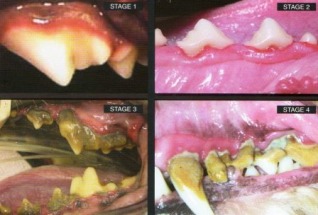Dental Care Products
C.E.T. Aquadent solution - water additive
DentAcetic- Teeth and gum cleansing wipes
C.E.T Enzymatic Toothpaste
C.E.T VeggieDent Chews
C.E.T HEXtra Chews
In addition to providing regular dental checks for their pets, pet owners can take steps at home to ensure good oral health:
- Feed a specially formulated pet food with proven oral health benefits in daily plaque and tartar control.
- Before starting with a toothbrush, use your finger as a brush to get your animal ready for brushing.
- C.E.T. HEXtra Chew - a rawhide treat, coated with an enzyme to help break down plaque. 1-2 per week is recommended.
- C.E.T. VEGGIEDENT - a vegetable-based chew that can help clean and freshen breath. No rawhide or beef bi-product.
- Dental wipes - these help to remove plaque from the tooth surface, but do not clean under the gum line. Good for those adult dogs that will not tolerate brushing.
- C.E.T. Aquadent - a drinking water additive that help maintain fresh breath and supports healthy teeth and gums by controlling plaque.
|
DOGS
|
CATS
|
Periodontal Disease in Dogs and Cats

Periodontal disease is the inflammation of some or all of the tooth's deep surrounding tissues. Periodontal disease begins as gingivitis, an inflammation of the gingiva, or gums. Gingivitis is reversible if treated promptly. Left unchecked, the condition advances to periodontitis and affects the periodontal ligaments and alveolar bone, leading to bacterial infections in the mouth and loose teeth. Sometimes there is even visible pus as shown in the Stage 4 slide to the left. This is a sign of a tooth root abscess. Periodontal disease is a painful condition for the dog or cat, and if left untreated can lead to heart, liver, and kidney damage.
Most people first notice a problem when they smell an odor coming from the pet's mouth (halitosis). This smell is caused by the build-up of bacteria and plaque in the mouth and should not be considered normal 'dog breath.' Another sign of a problem is facial swelling, often just below one of the eyes. This is often caused by a tooth root abscess which requires extraction and antibiotic therapy.
Prevention, as always, is the best strategy. A preventative oral health program includes proper diet, regular home-care tooth brushing and regular tooth cleaning by a veterinarian. Regular scaling, to remove plaque and tartar, prevents gingivitis from progressing to periodontitis. Once plaque has formed thick calculus, it is impossible to remove with tooth brushing alone and a professional dental cleaning may be warranted.
Animal Care Center is equipped with an ultrasonic dental scaler for that tough plaque and calculus build-up, and a dental drill should extractions be necessary. Call us with any questions or concerns you have about your pet's dental health!
